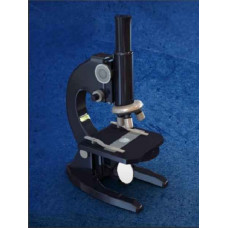Science that studies aquatic organisms (population of the hydrosphere) in interaction with the environment and those processes that result from the interaction of living and non-living components of the environment.
Hydrobiology includes several branches: industrial, sanitary, technical, fishing, nautical, agricultural, medical and veterinary, space, fish farming and others.
The science of aquatic populations, their relationship to habitat conditions, their importance to energy and matter conversion processes, and the biological productivity of oceans, seas and inland waters.
Hydrobiology is primarily an ecological science.
Living conditions in the aquatic environment are determined by the physical and geographical characteristics of the body of water, many of which, such as the chemical composition of the water, in particular the composition and amount of biogenic elements and dissolved gases, the nature of the bottom sediments, water transparency, etc., are strongly influenced by aquatic organisms and are often determined by their vital activity. Therefore, to the extent that hydrobiology studies the significance of vital phenomena in the general totality of interdependent processes in the aquatic environment, it shares common tasks with the complex geographical disciplines of limnology and oceanology.
At this level of research, problems such as the biological structure of the ocean, the biolimnological and bio-oceanological typology of reservoirs and water masses, the regularities of matter circulation and energy flow are solved.
A prominent place in hydrobiology is occupied by the development of scientific bases for the rational use of biological resources of the aquatic environment, in many ways related to the needs of marine and freshwater fisheries, pond fish farming, aquatic invertebrate and mammalian fisheries.
Another field of practical application of hydrobiology and stimulus for its development is the complex of biological problems connected with the use of continental fresh surface waters for drinking and industrial water supply, protection of natural waters from pollution, study of self-purification of contaminated waters and methods of biological treatment of sewage.
Hydrobiological methods are used to assess the degree of water pollution through the presence of certain indicator organisms (biological analysis of water quality).
The importance of aquatic organisms as agents of the self-purification process is studied. Related issues, mainly concerning biological interference with water supply and ship operation (fouling of ship hulls, various apparatus and hydraulic equipment, pipes and conduits of thermal power stations by micro-organisms and attached animals, overgrowth of water reservoirs by aquatic plants, damage to ships and port facilities by woodworms and stoneworms).
New tasks are also emerging, such as identifying the influence of plankton on sound absorption and propagation - information needed for hydroacoustics. A distinction is sometimes made between navigational hydrobiology, which studies biological interference with fleet operations, including bioluminescence, and agricultural hydrobiology, which includes the role of hydrobionts in fertilising rice fields and fish farming in these waters.
Hydrobiology
Tags: Hydrobiology

